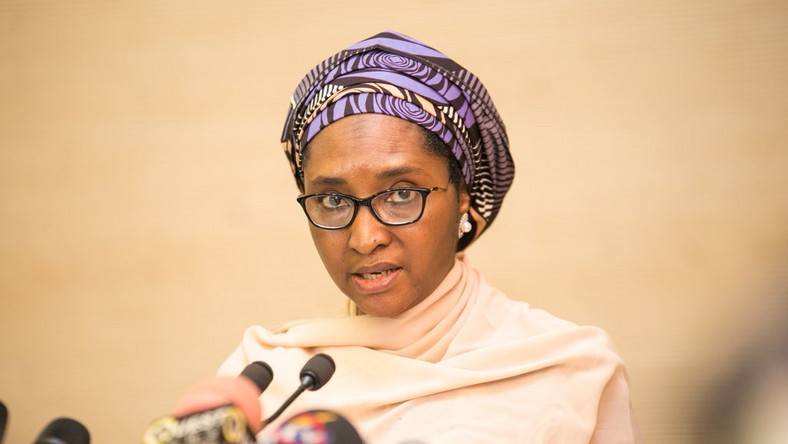In its quest to raise more infrastructure funds, the federal government is currently exploring the possibility of introducing Jollof Bonds into the capital market.
The Minister of Finance, Budget and National Planning, Mrs. Zainab Ahmed, who stated this at BusinessDay Investment and Capital Markets Conference, in Abuja, Thursday, also spoke of plans by the government to come up with Vision 2040.
She said that a working group was being set up on the Naira-denominated, internationally traded Jollof Bonds.
The minister said: “We are currently exploring the use of so-called “jollof bonds” to fund infrastructure. To this end, during the recently concluded 2019 Annual Meetings of the IMF and World Bank, we met with UK authorities to advance discussions regarding their commitment to support our infrastructure financing through the possible issuance of Jollof Bonds.
“Already, a working group is being set up to work on Naira denominated, internationally traded bonds. The Central Bank of Nigeria is leading this effort. We will explore all options on this at the next UK Investment Summit in January 2020.”
Tax incentives for capital market investments
She also said the federal government would attract more investors to the capital market through tax incentives.
“Among these strategic objectives are the introduction of tax incentives for investments in infrastructure and capital markets, and specifically, the introduction of tax rules to complement existing SEC Regulations for Securities Lending Transactions on The Nigerian Stock Exchange.
“This strategic objective recognizes the crucial relationship among fiscal policy, the regulatory environment and the strong capital market we all seek to ensure in Nigeria,” she added.
Resilient foundation
The minister reiterated the federal government’s commitment to build lasting, endurable and increasingly more innovative capital market.
“Ultimately, it is about building a more resilient foundation moving forward, and a strong, innovative and thriving capital market is integral to such a future,” she said.
She noted the slower Gross Domestic Product, GDP, growth, saying economic recovery had been hampered by security challenges and floods which have impacted negatively on the agricultural sector which employs the largest population of Nigerians.
Enhancing revenue
Mrs. Ahmed said her team was working on enhancing revenue through the continued implementation of the Strategic Revenue Growth Initiatives, SRGI; ongoing reconciliation and monitoring of revenues by the Presidential Revenue Monitoring and Reconciliation Committee; and the review of current tax laws and development targeted of fiscal policy reforms to coincide with the annual budget cycle.
Vision 2020
She said that Integrating Annual Budgets & Medium-Term Fiscal Strategies into rolling Medium & Long-term National Plans would become a norm, while returning the nation to long-term national plan circles.
The minister said further: “With discussions between the Executive and the National Assembly currently ongoing regarding the 2020 Budget proposal, we are well on our way to ensuring a stable January to December budget cycle.
“An important next step will be to transition our 2017-2020 Economic Recovery and Growth Plan to a successive long-term Vision 2040 Plan. To this end, I am currently working with the Minister of State for Budget and National Planning to prepare a Medium-Term Economic Growth Acceleration Plan for 2021-2024 as a successor to the ERGP.”
The Chief Executive Office (CEO) of BusinessDay, Mr. Frank Aigbogun, said the conference was informed by the need to ensure a robust capital market in the country.
He pledged his orgnisation’s support to the efforts of the federal government to return the nation’s economy to the path of accelerated growth.

